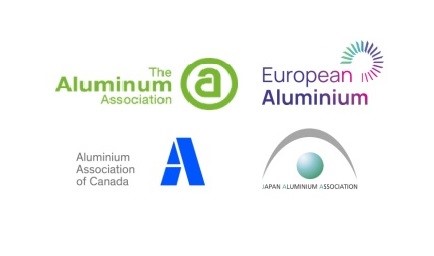

The aluminium associations of the United States, Europe, Canada, and Japan applaud the Organisation for Economic Cooperation and Development's (OECD) new research, 'The climate implications of government support in aluminium smelting and steelmaking'. The research investigates existing government assistance to aluminium smelting and steelmaking companies. It discovers that assistance has increased output and greenhouse gas (GHG) emissions in both sectors and transferred production to less efficient and higher GHG emitting plants, primarily in China and India.

The research additionally emphasises the anticipated advantages of alternative support measures aimed at promoting the advancement and implementation of novel climate technologies crucial for achieving global net zero emissions (NZE) targets. According to the OECD analysis, a hypothetical scenario is constructed whereby the current government support is eliminated. The paper suggests that such a measure would result in a 1 per cent reduction in world greenhouse gas (GHG) emissions, accompanied by a mere 0.3 per cent loss in global output. China and India primarily influence the findings above since they contribute to 96 per cent and 89 per cent of the emissions and output decreases, respectively.
"The report highlights that addressing excessive subsidies and thereby ensuring a level playing field globally can be a cost-effective strategy to reduce emissions in hard-to-abate sectors like aluminium. Across aluminium supply chains today, high levels of support in China displace output from lower GHG emitting production systems, resulting in a much higher carbon footprint globally. Removing such harmful support is an essential element of the aluminium industry making the transition to net zero emissions globally," said Charles Johnson, President & CEO of The Aluminum Association, Paul Voss, Director General of European Aluminium, Jean Simard, President & CEO of the Aluminium Association of Canada, and Yasushi Noto, Executive Director of the Japan Aluminium Association.
The primary reason for this phenomenon can be attributed to the fact that China and India exhibit a support-to-output ratio ranging from 1.8 to 7 times higher than the global average, along with greenhouse gas (GHG) emission intensities that are 1.5 to 3 times greater than those observed in OECD countries.
“Finding the right balance between government support and private sector spending on research, development and technology adoption at industrial scale is key to enabling a viable aluminium industry pathway to a sustainable future. The transition to NZE globally will require massive new investments, but the costs cannot be borne by governments alone. Additional private sector investments in electricity decarbonization, near zero GHG emission smelting systems, and near 100% aluminium recycling rates are also needed. These investments are contingent on aluminium markets being fair, open to competition, and free of aggressive state capitalism.”
“On behalf of our member companies and the 1.75 million workers they directly and indirectly support across the United States, Europe, Canada, and Japan, we are fully committed to working with international organizations and with governments to ensure that responsibly and sustainably produced aluminium contributes to a clean energy economy globally.”



Responses






